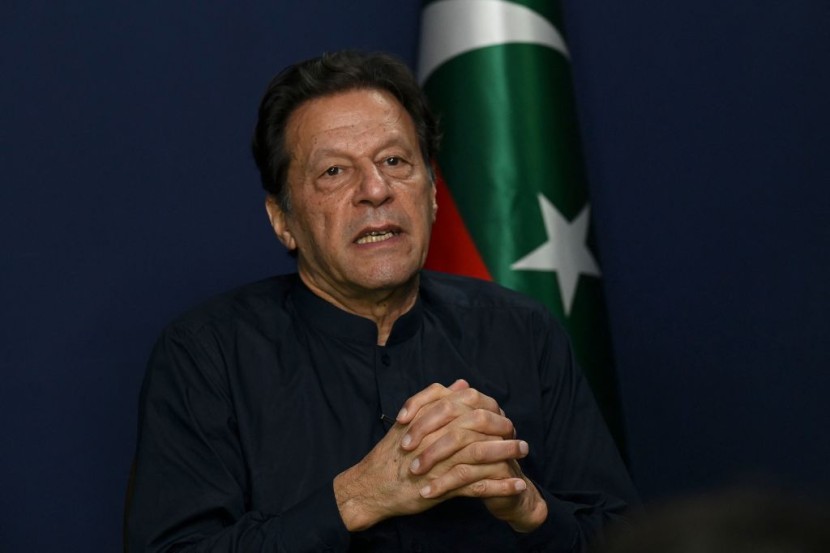Former Pakistani Prime Minister Imran Khan's bail plea was approved by the Supreme Court on Wednesday, November 22, said the lawyer representing him.
This occurred one day after a different judge from another court pronounced that the charges against the detained ex-leader on allegations of leaking state secrets were unconstitutional.
The 71-year-old former cricket star is now engaged in a number of court challenges in an effort to get his release from prison and lead his party in the campaign for the upcoming general election on February 8, 2024. His archrival, another former prime minister, is also expected to run for the office.

Granted Bail Request
A three-year prison sentence was handed down on August 5 for Khan, who served as prime minister from 2018 to 2022, on charges of illegally selling state gifts. The Supreme Court, according to his attorney, granted the bail request.
According to Reuters, lawyer Naeem Panjutha said that a judgment will be made after hearing arguments from both parties at the next session. He also noted that the Supreme Court would be seeking advice from the government on the plea but that no hearing date had yet been established.
On Tuesday, November 21, the Islamabad High Court ruled that Khan's prosecution on charges related to an allegation that he disclosed a confidential cable delivered to Islamabad by Pakistan's ambassador to the United States last year was unconstitutional, which is good news for him.
The court determined that the trial, being conducted in prison for security concerns, did not fulfill legal criteria, meaning the prosecution would have to begin the case.
Khan was sentenced for one corruption case, but a judge postponed his sentence to give him bail. He is still behind bars on unrelated charges.
See Also : Pakistan Court Suspends Imran Khan's Graft Sentence But Needs To Remain in Jail; Here's Why!
Political Turmoil
Khan has been at the center of prolonged political instability in Pakistan, a country with access to nuclear weapons and with a focus on the influential role of the military in civilian affairs.
He was removed from office in 2022 after a no-confidence vote in parliament. At the time, he said the military was attempting to distance itself from him following a disagreement with the generals over selections to high-security positions.
While Khan himself will be unable to participate in the next February election due to his conviction, his party will square off against that of Nawaz Sharif, a former prime minister who was first removed from office in a coup in 1999 and then again in 2017 due to a court verdict. After four years in self-exile, Sharif came home last month to aid his party's bid for continued rule.
Worries over the future of Pakistan have been amplified by the fact that the country's upheaval in politics has coincided with its worst economic circumstances in decades. Political disputes in Pakistan have a long history of being fought out in court.
There have been scores of lawsuits filed against Khan. He claims that his political opponents, including the military, have come up with the allegations against him. The armed forces, however, insist they had nothing to do with Khan's trials.
© 2026 HNGN, All rights reserved. Do not reproduce without permission.








